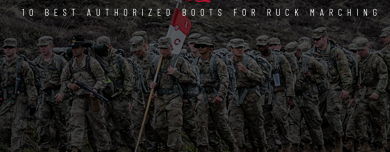
The right to practice one’s religious beliefs openly has become a very hot topic in recent years. Practicing religion is not a prerequisite in the military; it has always been simply a matter of choice. I feel that Mikey Weinstein appropriately outlined a great view of the situation for our military personnel when he said, “When one proudly dons a US military uniform, there is only one religious symbol: the American Flag. There is one religious scripture: the American Constitution. Finally, there is only one religious faith: American Patriotism.”
What the Founding Fathers Say
Our founding fathers, many of whom were religious gentlemen, created a secular government with good reason.
- They were conscious of the potential pitfalls of the church-state alliances that had been fostered throughout Europe. These alliances between church and state were oftentimes the reasons why many chose to depart and to forge a new path in the New World.
- They also looked back to our early years where some colonies established churches for their area and forced the citizens to support them. Needless to say, this caused a good deal of strife among early colonists.
- Another very important fact regarding religion and our country is the signing of the 1797 Treaty with Tripoli which declares, “The government of the United States is not in any sense, founded on the Christian religion.
Religious Accommodations
Over the last decade, the debate over religious freedoms within the military has become an issue. Consequently, the Department of Defense adopted a new policy regarding religious accommodations. This policy came into effect in January 2014. The new policy states that the Department of Defense places a high value on the rights of military personnel “to observe the tenets of their respective religions or to observe none if they choose to do so.” This policy also contains an extensive list of criteria to determine whether to grant an exemption from a military rule based on religious grounds.
Requests for religious accommodations will be promptly granted if it will not affect mission accomplishment. The directive specifically states that accommodations may include matters of grooming and appearance (including hair length), religious tattoos, or religiously motivated body piercings. Accomplishing our mission such as military readiness, good order, discipline, and health on both the individual and unit levels is the main priority. An essential part of unit cohesion is establishing and maintaining uniform military grooming and appearance standards. Functioning as a cohesive unit is essential when our military is involved in a mission.
My big question is, since the beginning of the military, there have always been people of different religion, heritage, cultures, etc. Why now after hundreds of years do people feel the need to stand out from their fellow brothers and sisters in arms based on their beliefs? It doesn’t matter what religion you are; you are a soldier first and foremost. One of the things that has always been important in the military, in my opinion and experience, is that no matter where you came from or what you believed, we are all the same – a soldier. You need that uniformity of uniforms, dress, patriotism, loyalty, etc. so that no matter where you are, people know you are an American Soldier.
Disclaimer: The content in this article is the opinion of the writer and does not necessarily reflect the policies or opinions of US Patriot Tactical.






